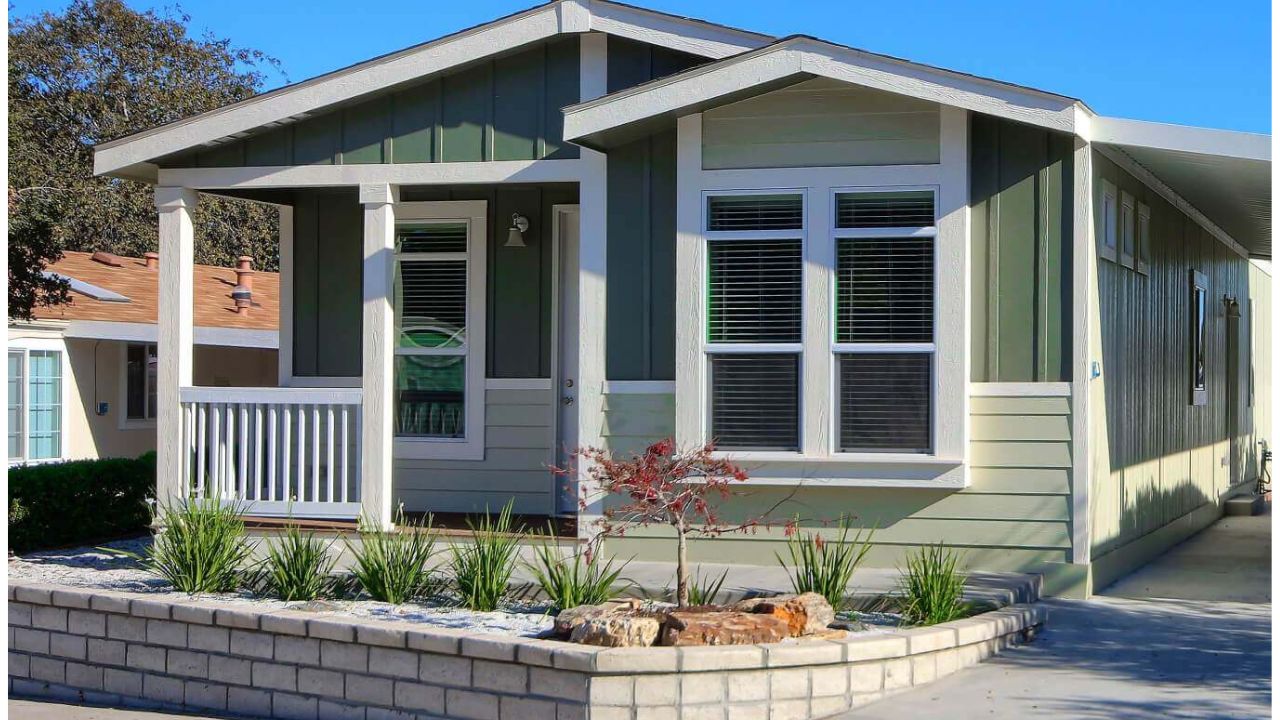The F1 Student visa permits students from foreign countries to study in America. These students can be in colleges, universities, or conservatories.
Although this permits the students to be in the U.S for the period of their academic program, they can’t stay permanently. Hence, the need to renew your student visa.
The F1 visa is a U.S nonimmigrant visa and does not grant the students permanent residence.
However, for students whose academic program is more than a year, they want to know if its possible to renew their student visa in America.
If you belong in this category, its your lucky day. As this article explains how to renew your student visa in America and its extension process.
Table of Contents
- What is a Student Visa in America?
- How to Apply For a Student Visa
- How Long Does a Student Visa in America Last?
- F1 Student Visa Renewal Process
- How to Renew a Student Visa
- Can I Apply For an F1 Student Visa Extension?
- What If My F1 Visa is Expiring and I Cannot Renew or Extend it?
- How to Renew Student Visa in America FAQs
- Conclusion
- References
What is a Student Visa in America?
A student visa is the most important document given to anyone who wishes to study in the United States.
A citizen of a foreign country who wishes to enter the United States must first obtain a visa, either a nonimmigrant visa for temporary stay or an immigrant visa for permanent residence.
More so, the student visa is of two types (F visa or an M visa). Your course of study and the type of school you plan to attend determine whether you need an F visa or an M visa.
Below is a table showing the different academic institution and the type of visa required as stated by the US Department of State – Bureau of Consular Affairs.
| To enter the United States to attend | Visa Category |
| University or College | F |
| High School | F |
| Private Elementary School | F |
| Seminary | F |
| Conservatory | F |
| Another academic institution, including a language training program | F |
| Vocational or other recognized nonacademic institution, other than a language training program | M |
How to Apply For a Student Visa
To apply for a student visa, there are some required process to take. The order of these steps and how you complete the application process may vary based on the U.S. Embassy or Consulate.
Regardless, below are the steps to follow when applying for a student visa.
Step 1: Complete the Online Visa Application
- You must complete the online visa application together with your form DS-160 on the US Bureau Official Website
- Print the application form confirmation page to bring to your interview.
- While completing Form DS-160, you must upload your photo to complete the application process. Your photo must be in line with the Photograph requirements
RELATED ARTICLE: How Long Does a Student Visa Last & How can I Renew?
Step 2: Schedule an Interview
As a visa applicant, you must schedule an interview with the consular officers. Exceptions to this are seen in the table below.
| Age Requirement | Interview status |
| 13 and younger | Generally not required |
| 14 – 79 | Required (some exceptions for renewals) |
| 80 and older | Generally not required |
You should schedule an appointment for your visa interview at the U.S. Embassy or Consulate in the country where you live.
You may schedule your interview at another U.S. Embassy or Consulate, but be aware that it may be more difficult to qualify for a visa outside of the country where you live.
Wait times for interview appointments vary by location, season, and visa category, so you should apply for your visa early.
Click HERE for more details about Interview Wait Times
New Students: Student visas for new students can be issued up to 120 days in advance of the start date for a course of study. However, you will not be allowed to enter the United States on your student visa more than 30 days before the start date.
Returning Students: Student (F and M) visas for continuing students may be issued at any time, as long as the student is currently enrolled at a SEVP-approved school or institution and in SEVIS. Continuing students may enter the United States at any time before classes start.
Step 3: Prepare for your Interview
While preparing for your interview, you are expected to pay a non-refundable visa application fee of $160.
If your visa is approved, you may also pay a visa issuance fee, if applicable to your nationality.
Step 4: Gather Required Documents
Gather the following documents before your Visa interview.
- Passport. Your passport must be valid for at least six months beyond your period of stay in the United States.
- Nonimmigrant Visa Application, Form DS-160 confirmation page.
- Application fee payment receipt, if you are required to pay before your interview.
- Photo – You will upload your photo while completing the online Form DS-160
- Certificate of Eligibility for Nonimmigrant (F-1) Student Status-For Academic and Language Students, Form I-20 or Certificate of Eligibility for Nonimmigrant (M-1) Student Status for Vocational Students, Form I-20 – Your school will send you a Form I-20 once they have entered your information in the SEVIS database. You and your school official must sign Form I-20.
Additional documents that may be required are;
- Transcripts, diplomas, degrees, or certificates from schools you attended
- Standardized test scores required by your U.S. school
- Your intent to depart the United States upon completion of the course of study
- How you will pay all educational, living and travel costs.
RELATED ARTICLE: What are the Student Visa Requirements in the U.S?
Step 5: Attend your Visa Interview
Here, a consular officer will interview you to determine whether you are qualified to receive a student visa. You must show that you meet the requirements under U.S. law to receive a visa.
Additionally, ink-free, digital fingerprint scans are taken as part of the application process. They are usually taken during your interview, but this varies based on location.
After your visa interview, the consular officer may determine that your application requires further administrative processing. The consular officer will inform you if it is required.
Step 6: Entering the United States
A visa does not guarantee entry into the United States. A visa only allows a foreign citizen to travel to a U.S. port-of-entry (generally an airport) and request permission to enter the United States.
After you present your passport, visa, and Form I-20 at the port-of-entry, a CBP official will make this decision. Once you are allowed to enter the United States, the CBP official will provide an admission stamp or paper Form I-94, Arrival/Departure Record.
Step 7: Extending Your Stay
Foreign students in the United States with F visas must depart the United States within 60 days after the program end date listed on Form I-20, including any authorized practical training.
Failure to depart the United States on time will result in being out of status.
Note: Students on F or M visas are not permitted to enter the United States earlier than 30 days before the start date of their program. If you wish to enter earlier than 30 days before your start date, you must separately apply and qualify for a visitor (B) visa.
How Long Does a Student Visa in America Last?
As a student studying in America, your F-1 visa will remain valid for 60 days after completion of your program.
Afterward, you can request to extend your stay through the U.S. Citizenship and Immigration Services (USCIS) website.
Failure to depart the United States on time will result in being out of status. Under U.S. law, visas of individuals who are out of status are automatically voided.
More so, failure to depart the United States on time may also result in you being ineligible for visas in the future.
F1 Student Visa Renewal Process
To renew F1 visa you must follow the same process as the initial F1 visa application. You should apply for F1 visa renewal outside of the U.S, preferably at the U.S Embassy or Consulate in your home country.
After you get your F1 visa, the U.S. Embassy will issue it for the duration of your academic program.
For example, if your program takes 1 year to complete, the Embassy will most likely give you the visa for a year.
However, if the program takes longer, the Embassy will issue a visa that is valid for less.
This means that if your academic program takes 2 or more years to complete, the U.S. Embassy can give you a visa for only 1 year. Afterward, you will have to renew your F1 visa.
More so, you can stay in the U.S. if your F1 visa is expired, as long as your Form I-20, Certificate of Eligibility for Nonimmigrant Student Status is valid. But if you travel out of the U.S, it may be difficult to enter again.
Hence, it is advised that you renew your F1 student visa rather than stay with an expired one.
RELATED ARTICLE: How To Change Your Student Visa To Green card
How to Renew a Student Visa
There are two main ways to renew your F1 student visa. They are:
- Applying to a U.S. Embassy for renewal from your home country
- Using the Automatic Visa Revalidation option.
#1. Applying to a U.S. Embassy for Renewal From Your Home Country
The U.S. Embassy recommends that you apply for a visa renewal from your home country. This is because, it is likely that other countries could deny your visa. And if your visa is denied, you cannot enter the U.S anymore even if your program has not ended yet.
However, if you visit another country (excepts for Canada and Mexico), you must follow the application process in the country.
Conversely, to renew your F1 Student visa, you must file Form DS-160, Online Application for Nonimmigrant Visa to the U.S Embassy.
On completion of the form, you must save your confirmation page and number. Since you have already applied once, the U.S Embassy may not need an interview.
During your visa renewal, you’d still have to submit some supporting documents. The supporting documents must be enough to convince the Embassy that they should renew your F1 visa.
These documents include;
After you submit the documents, you must wait for the period of processing. During processing, you must stay in the country you applied and you cannot travel to the U.S.
If you get an approval, the embassy will notify you of their decision. If your visa was denied, you’d have to return to your home country.
READ ALSO: Canadian Student Visa: Step by Step Procedures
#2. Automatic Visa Revalidation
An easier alternative to renewing your F1 student visa is to take advantage of the automatic visa revalidation option.
This option allows students to travel to Canada, Mexico, or the U.S territories for less than 30 days and get their visa automatically revalidated once they enter the U.S.
So, before your visa expires, or after it has expired, plan to travel to any of the countries mentioned above. If you’d need a visa to enter Canada, try to obtain it before your F1 visa expires.
When you travel to any of these countries, you have the option of staying there as a vacation or you can immediately try to enter the U.S.
When you enter the U.S, the Customs and Border Protection (CBP) officials will verify your status as a student in the U.S.
Once they do, your F1 visa will be automatically revalidated. The revalidation will only be for the period that you are enrolled in your academic program.
Can I Apply For an F1 Student Visa Extension?
Yes. you can apply for an F1 student visa extension. However, there are only few opportunities that lets you extend your visa application beyond its validity and duration of your academic program.
One common option is to complete a post-graduation Optical Practical Training (OPT). The OPT program allows you (F1 visa student) to work in the U.S. for a maximum of 12 months.
You can work for these 12 months during your academic program or after. If you want to extend your F1 visa, it is better to do your OPT after your program ends.
While you are on OPT, you can decide to work part or full-time for a U.S employer. When the 12 months are over, the employer can choose to sponsor you for an H-1B visa and change your status. If you have a STEM-related field, you can extend your OPT for another 24 months.
For all other students, once the 12 months OPT is over, your F1 visa expires and you cannot renew or extend it.
Renewing your Student Visa While on OPT
If you travel outside of the U.S. after your F-1 visa is expired during your post-completion or STEM OPT period, you will need to renew your visa before returning.
Kindly note that you are still on F-1 student status while on OPT/STEM OPT, even though you have graduated.
When renewing you visa on OPT, you’d be required to come with the following documents;
All other procedures still remain the same.
READ ALSO: How To Get Student Visa For U.S From India
What If My F1 Visa is Expiring and I Cannot Renew or Extend it?
Once your academic program and OPT are over, you have 60 days to leave the U.S and return to your home country. Remember that during your application period, you submitted proof that you’d go back home once your program is over.
However, if you want to stay in the U.S even if your F1 student visa has expired, you’d have to change your status. There are a few ways to do this. They include;
#1. Marry a U.S. Citizen
This is the easiest option to extend your stay in the U.S. and make it permanent. You can meet someone and start a relationship with the person which leads to marriage.
Once engaged, the F1 visa student would qualify for a fiancé visa and after marriage, they get the IR-1 visa. The IR-1 visa is the spouse of a U.S citizen visa and it allows you to live and work in the U.S permanently.
While desiring to extend your stay in the U.S, you must be careful to not fake a relationship.
The U.S Citizenship and Immigration Services (USCIS) requires extensive proof of your relationship with the U.S citizen. They do this to prevent fake Green Card marriages.
Hence, once you are married, you’d need to provide proof that the marriage was legal. Additionally, you’d provide marriage certificate, declarations from your ceremony witnesses, pictures of the wedding, and receipts from your wedding reception or honeymoon.
#2. Become a U.S. Investor
To extend your stay, you can invest in a U.S. commercial enterprise and create jobs. This could make a case that you are contributing to the economic development of the U.S and you may qualify to get an Investor Green Card or EB-5 Visa.
However, this is difficult, as you are required to invest between $500K and $1 million in the commercial enterprise to qualify for an EB-5 visa.
As a student who was on an F1 visa until that point, there’s a high unlikely chance that you will have that amount of money saved and ready to invest.
#3. Get a H-1B Visa
This is another option that you can follow to extend your stay in the U.S. All you need to do is to get a H-1B visa sponsorship. This changes your status to a nonimmigrant visa and you can stay and work in the U.S for up to 6 years.
The major benefit of this is that it is a dual intent visa. This means that after 6 years, you can also try to petition and get a Green Card. This will be an Employment Based Green Card which will allow you to live and work in the U.S permanently.
However, if you could not get an employer to sponsor you for an H-1B visa, you can either return to your home country or try more difficult and complicated options.
How to Renew Student Visa in America FAQs
Immediately your student visa is expired, you need to renew it to complete your academic program.
Yes, as a student living in the U.S, you’d get access to the healthcare system. However, the costs may be too high. So, its best to get a health insurance.
Yes you can. Since you have applied before, you may not require an interview.
60 days. You only have 60 days to return to your home country when your visa expires.
No, you can’t renew your student visa in the US. You’d have to contact the U.S. Embassy or Consulate in your home country for your visa renewal.
Conclusion
I hope this post helps you renew your students visa with ease.
All the best!
References
DISCLOSURE: This post may contain affiliate links, meaning when you click the links and make a purchase, we receive a commission.






1 comment
Comments are closed.